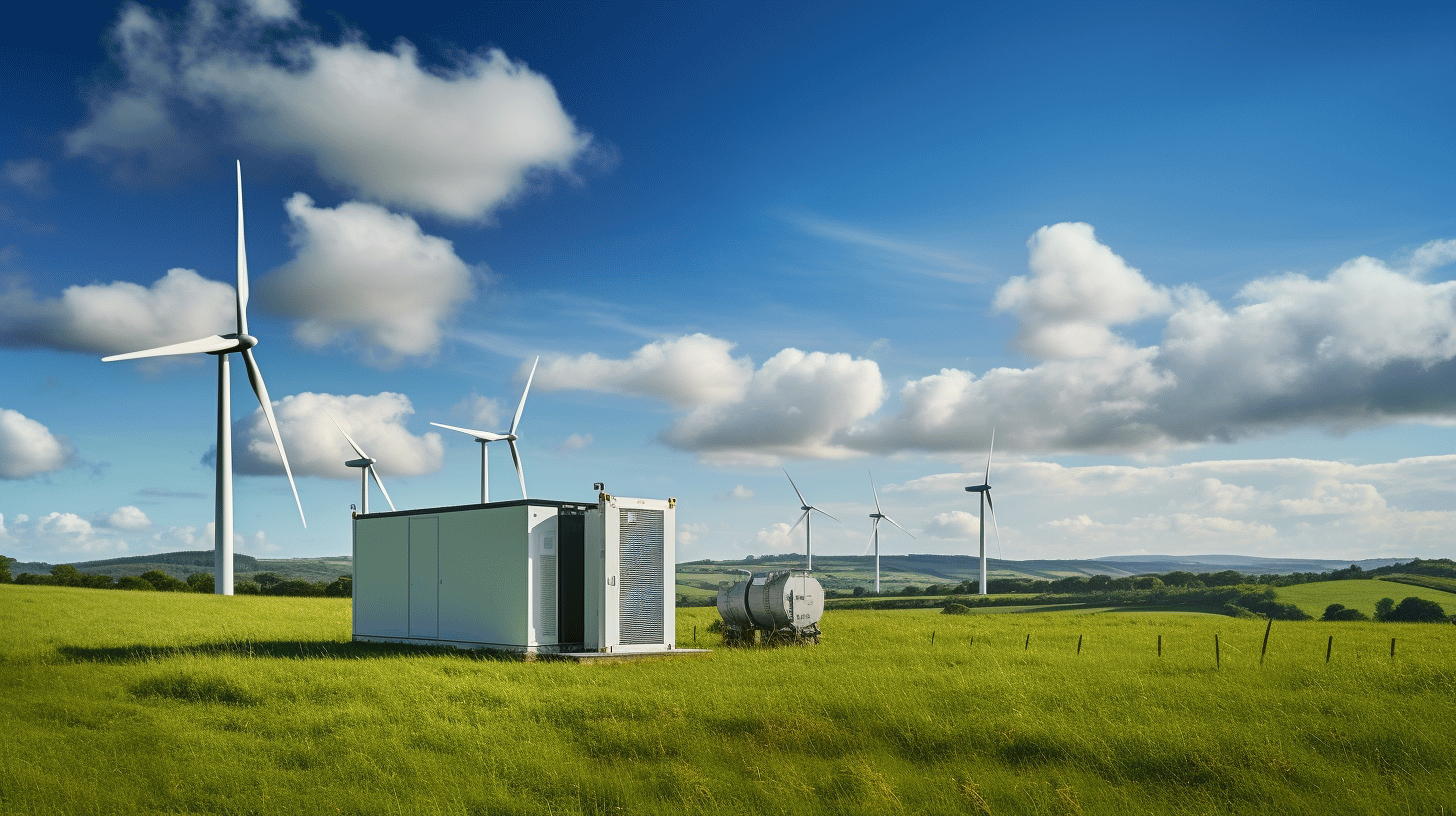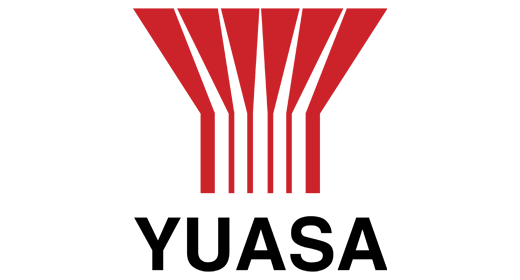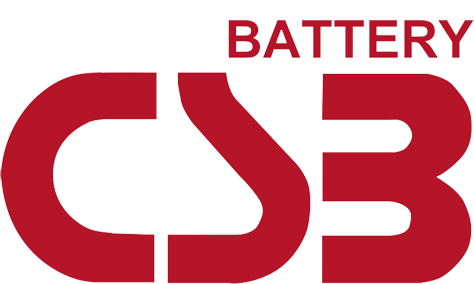The Role of UPS in Renewable Energy Integration
In our mission to create a sustainable future, renewable energy stands as the cornerstone of our efforts. The United Kingdom is one nation leading this environmental revolution, aggressively embracing and investing in clean, renewable sources like wind and solar power. But as the renewables sector grows exponentially, reliability becomes paramount. The fluctuation in energy sources due to the natural variability of sunlight and wind necessitates the use of Uninterruptible Power Supply (UPS) Systems to ensure a smooth energy transition.
Join us as we traverse the complex landscape of the UK's growing renewable energy market and discover how UPS systems work as the silent guardians in the background, ensuring sustainable and reliable energy production. We'll delve into the intricacies of balancing energy generation with consumption and shed light on UPS systems' crucial role in managing the variability of renewable energy sources. Get ready for an enlightening journey into the future of power, where renewable energy and advanced technology pave the path towards a greener, brighter world.

The Growth of Renewable Energy in the UK
Renewable energy is transforming the landscape everywhere, and the UK is no exception. In recent years, we've witnessed a revolution in electricity production, with sustainable, renewable energy sources taking centre stage. Data shows that renewables accounted for 14.6% of all electricity generation in the UK by 2013, a dramatic rise from just 2% in 1991.
Growth in Electricity Generation
The growth of renewable energy in the UK's electricity generation has been phenomenal. Thanks to a mix of wind, solar, hydropower, and other renewable sources, we're cleaner and greener than ever before. Think about it: in 1991, renewables made up a measly 2% of all electricity production. Speed forward to 2013, and that number had grown seven-fold, reaching 14.6%. Now that's progress we can be proud of!
The shift towards renewables isn't just good for the environment; it's beneficial for the economy too. Investing in clean, green energy solutions leads to job creation and drives innovation in the energy sector.
Renewable Energy Market Projection
Now, as we look to the future, the trend for renewable energy in the UK seems set to continue on an upward trajectory. Predictions forecast a robust growth rate for the UK renewable energy market of 3.09% between 2024 and 2029. With that kind of growth, the era of fossil fuels could well and truly be in the rearview mirror.
What's driving this growth, you might wonder? The answer lies in a combination of factors: awareness about climate change, government incentives for cleaner energy, and advancements in renewable technology are all pushing us towards a greener future.
Fall in Emissions
This surge in renewable energy adoption also means we're making substantial strides in reducing harmful emissions. In fact, UK emissions have fallen by around 50% since 1990. That's a figure we can be proud of, reflecting our commitment to cutting carbon and curbing climate change.
In summary, the storyline of renewable energy in the UK is one of the significant achievements and exciting prospects. As we continue to embrace cleaner, greener power sources, we're well on our way to a sustainable future. The growth in renewable energy generation, the promising market projections, and the reduction in emissions are all clear indicators of the UK's success in adopting renewable energy.
Present Situation - Renewable Energy in the UK
Share in Total Electricity Production
The shift to renewable energy has experienced accelerative growth in the UK, making a substantial contribution to its power matrix. As of 2022, a significant 41.8% of the electricity produced in the UK comes from renewable sources. This substantial contribution underscores the extent of the country's green energy transition and indicates a paradigm shift in the nation's power generation.
- The proportion of renewable energy use in the UK's power matrix has seen a significant increase, reflecting the country's commitment to sustainable energy practices.
- A study in 2022 reported that renewable sources generated nearly half (41.8%) of the UK's electricity, undeniably illustrating the country's stride towards renewable power.
This shift in energy production practices is not only noteworthy but also signals the UK's commitment to a cleaner and more sustainable future.
Role of Wind and Solar Power
Among the renewables, wind and solar power have emerged as leaders in the UK's electricity generation landscape. Our data highlight that in 2018, wind and solar power combined, provided an impressive 22% of UK's total power generation.
- Wind power has witnessed tremendous growth and acceptance. The UK currently boasts over 11,000 wind turbines, with a total installed capacity of a whopping 30 GW.
- Solar power, too, has reported strong growth in the region, forming an integral part of the country's renewable energy infrastructure.
This exponential growth in wind and solar power infrastructure is a testament to their effectiveness and feasibility as primary renewable energy sources.
The current renewable energy scenario in the UK signals a promising future, where sustainable and clean energy practices are the norms, rather than exceptions. Whether we're talking about the considerable share renewables have in the power matrix or the leading roles of wind and solar power, the common thread is clear - the UK is setting a global example in the renewable energy sector. Let's hope that this phenomenon sees an upward trend in the years to come. Encouraging the widespread adoption of renewables is a collective responsibility, and it's heartening to see the UK lead the way.
Role of Uninterruptible Power Supply Systems
Today, we live in a digitally driven world that heavily relies on continuous power supply. It's a domain where even a minor power outage can lead to major operational hindrances and financial losses. Here steps in the irreplaceable role of Uninterruptible Power Supply (UPS) systems. They serve as a gatekeeper, ensuring smooth power supply in situations of abrupt outage. Let's delve deeper into the crucial roles they play in modern age power systems.
Enhancing reliability
Trust us when we say that the greatest enemy of your critical operations is not necessarily a software glitch but an unsuspected power disruption. Following are the key points highlighting how UPS systems enhance reliability:
- UPS systems are equipped to sense a power outage and seamlessly switch to the battery backup, thereby ensuring continuous power during emergencies or grid maintenance settings.
- They are designed to handle fluctuations in voltage levels, preventing potential damage to your high-value equipment.
- UPS systems can also filter out any noise or spikes in the power supply to ensure the smooth running of your systems.
This paradigm of reliability established by UPS systems is a cornerstone in fields ranging from health care to information technology.
Eco-Friendly contribution
In our pursuit of a sustainable environment, the integration of renewable energy sources with UPS systems is a game-changer. Here's how UPS systems make their eco-friendly contribution:
- UPS systems have the capability to tie with renewable energy sources, like solar panels and wind turbines.
- By ensuring a continuous power supply through these eco-friendly sources, they considerably reduce the reliance on conventional, non-renewable energy sources.
- UPS systems can also deliberately reduce energy consumption at times of low utilisation, contributing to overall energy efficiency.
Thus, UPS systems play an integral role in incorporating green technology into power systems, a crucial stride towards sustainable development.
Management of energy variability
With the multifaceted reliance on power supply, management of energy variability is key to powering critical operations without obstruction. Here's how UPS systems effectively manage energy variability:
- They are capable of managing the variability in power quality. For instance, filtering out harmonics, fluctuations, and surges to protect your equipment.
- They can handle the variability in energy demand by effectively distributing power based on the requirements of various systems.
- Furthermore, UPS systems enable you to optimise power use during periods of high energy costs and draw on stored energy during peak times.
To put it in a nutshell, UPS systems serve as the backbone in areas where continuous and quality power supply is critical. They enhance reliability, contribute towards ecological sustainability, and adeptly manage energy demand variability. Considering all these factors, the importance of UPS systems in any industry vertical is indispensable and, quite simply put, a business-enabler.
Incorporation of UPS with Energy Storage Systems
Uninterruptible Power Supply, or UPS, is a staple of any modern business facility or data centre. It serves as a safeguard, ensuring continuity of operations despite power disruptions. However, did you know that when combined with energy storage systems, a UPS could unlock even more potential and benefits?
One of the key advantages lies in the improvement of backup power efficiency. It's no secret—combining UPS with an energy storage system significantly enhances the backup power efficiency. This integration allows for uninterruptible power supply during outages, considerably shortening the downtime that adversely impact operations, and in turn, the bottom line.
Next, we have the fascinating field of grid integration. By functioning as a buffer between the grid and the load, incorporating UPS with energy storage systems facilitates smoother grid integration. It aids in managing power flow and mitigates the issues related to grid instability, offering substantial benefits in terms of reliability and service quality.
Lastly, we have the incorporation of UPS with energy storage systems functioning as a distributed energy resource. This setup makes it possible to leverage the system during peak load periods, thereby reducing demand on the grid and minimising energy costs.
As you can see, the incorporation of UPS with energy storage systems redefines their role, transforming them from mere fallback options to valuable additions that drive efficiency. So, consider exploring this exciting avenue to witness a significant improvement in your business operations and energy management strategy.
Incorporation of UPS with energy storage systems does not just guard against power outages. It creates a more efficient, reliable, and cost-effective energy landscape that makes it an option worth considering.
Scalability of UPS systems
With the ever-growing demands of businesses requiring robust power backup solutions, the scalability of Uninterruptible Power Supply (UPS) systems has become a critical consideration. Today, we'll delve deep into the vital role UPS scalability plays in flexible business operations, focusing on modular UPS systems.
In an increasingly digital world where power is crucial, having an adaptable UPS system ensures that your business remains both resilient and reliable in the face of change. Businesses need to prepare for both the immediate need and future growth scenarios, which is where the scalability of UPS systems comes in.
The principle behind UPS scalability lies in its ability to adjust as per your business' growing power requirements. UPS systems are scalable in both its capacity and redundancy. Capacity scalability refers to a UPS system's ability to provide an increased power supply when needed, while redundancy scalability refers to a system's capability of providing extra resources to maintain operations even when one module fails.
Some of the main advantages of UPS scalability include:
- Flexibility to meet growing power demands
- Efficient operations
- Reduced operational costs
- Enhanced reliability
Now, let's shift the spotlight to the marvel of modular UPS systems and how they pave the way for easy scalability.
Modular UPS Systems
Modular UPS systems have revolutionised the way businesses approach power supply solutions. The primary advantage of these systems lies in their easy scalability and customisation to meet the changing power needs.
Modular UPS systems are designed with several power modules that can be interchanged, upgraded, or added as per your need. This inherent flexibility enables businesses to tailor their power supply machinery as per their needs. Not only does this make them a cost-effective choice, but it also ensures high system availability and reliability.
The inclusion of a modular UPS system in your business set-up can prove to be a game-changer in terms of:
- Seamless expansion opportunities
- Increased operational efficiency
- Lower risk of downtime
- Improved energy consumption
To illustrate, consider the increasing power needs in renewable energy systems. Here, the easy scalability and customisation provided by modular UPS systems can cater to their growing power requirements effectively and efficiently.
Mastering the scalability of UPS systems is pivotal to maintaining a smooth business operation. Careful consideration of your power supply requirements and the remarkable advantages offered by scalable and modular UPS systems can go a long way in setting your business up for success! While the investment might seem daunting at first, the returns on resilience, reliability, and flexibility are well worth the effort.
Role of UPS in Smart Buildings and Power System Reliability
Imagine a future where smart buildings intelligently manage energy usage and contribute to a sustainable environment. This future isn't just a dream, but an achievable reality with the help of Uninterruptible Power Supply (UPS) systems. UPS systems play a crucial role in the development of smart buildings while enhancing power system reliability. From improving energy efficiency, reducing carbon footprints, to stabilising voltages, let's delve deeper to understand how UPS adds value to smart buildings and power systems.
Enhancing Energy Efficiency
In today's fast-paced world, the demand for energy continues to rise. Smart buildings, integrated with UPS systems, provide an answer to this increasing energy need. These advanced buildings, equipped with UPS, can actively manage power usage in real-time. It beautifully blends energy convenience with energy responsibility.
UPS systems operate on two main principles:
- They save energy during non-peak hours, which is used when demand spikes.
- They provide continuous power supply during unexpected blackouts.
These principles significantly contribute to energy efficiency, making the building smart, self-reliant, and sustainable.
Contribution to Decarbonisation Goals
The integration of UPS is not just about improving energy efficiency; it's also about meeting the environmental conservation goals. By converting and storing energy during non-peak hours, UPS systems help reduce the pressure on power grids. This approach significantly cuts down the peak load demand, thereby contributing to reduced carbon emissions.
Consider this: Smart buildings equipped with UPS act like mini power stations, storing energy and releasing it when needed. This way, not only do we utilise power more intelligently, but we also play our part in achieving global decarbonisation goals.
Stabilising Voltages
Smart buildings need consistent power supply, and voltage stability is a crucial requirement. Here's where UPS systems come into play. They maintain a steady flow of electricity, cushioning the smart building's electronic appliances against damaging voltage fluctuations.
By ensuring a stabilised voltage, UPS systems foster reliability in power distribution networks. They safeguard the appliances, boost their longevity, and minimise the risk of electronic malfunctions, which, in turn, assures improved service-life of equipment.
As technology evolves and the world becomes ever more connected, the role of UPS systems in shaping energy-efficient and sustainable smart buildings becomes more vital. Not only do they secure power system reliability, but they also pave the way for a greener future. As we continue to invest in smart buildings, let's remember to equip them with the power of UPS.
Conclusion
The engagement with renewable energy in the UK is set to drive significant changes in our power systems. As we increase our reliance on wind, solar energy, and other renewable sources, there's also a growing demand for effective solutions to manage the variability of energy input and maintain the stability of power supplies.
Uninterruptible Power Supply (UPS) systems like the ones provided by Secure Power play an invaluable role in bridging gaps in power supply and ensuring the reliability of our power systems. From enhancing energy efficiency to contributing to decarbonisation goals, UPS reliably secures a range of facilities against power disruptions.
In addition, the scalable, modular UPS systems we offer bring added flexibility and resilience to power infrastructures. With effective backup power systems and maintenance services, we can ensure that our transition to renewable energy does not compromise our ability to keep the lights on.
As steps are taken to integrate UPS with Energy Storage Systems, these systems could potentially serve as distributed energy resources, further contributing to energy efficiency and sustainability.
The involvement of UPS in energy supply reliability symbolises the future of renewable energy in the UK - a future of enhanced resilience, technological innovation, and sustainable growth. As we continue to navigate this landscape, one thing is clear: the role of UPS in renewable energy integration is set to become more critical than ever.
Frequently Asked Questions
-
What is an Uninterruptible Power Supply (UPS) system?
An Uninterruptible Power Supply (UPS) system is a backup power system that provides instant power to electrical devices in case of a power outage or voltage fluctuation. It ensures continuous and reliable power supply to critical equipment.
-
How does a UPS system work in renewable energy integration?
In renewable energy integration, a UPS system is used to provide power continuity and stability. It ensures uninterrupted power supply to renewable energy systems, such as solar panels and wind turbines, by bridging any gaps caused by fluctuations or outages in the main power grid.
-
What are the benefits of using UPS systems in renewable energy integration?
The benefits of using UPS systems in renewable energy integration include: 1. Ensuring uninterrupted power supply, 2. Protecting equipment from damage due to power disruptions, 3. Maximising energy generation and utilisation efficiency, and 4. Increasing the overall reliability and stability of the renewable energy system.
-
Can UPS systems store excess renewable energy?
No, UPS systems are not designed to store excess renewable energy. Their primary function is to provide backup power and bridge power gaps during fluctuations or outages. For energy storage purposes, separate energy storage systems like batteries are used.
-
How do I choose the right UPS system for renewable energy integration?
When choosing a UPS system for renewable energy integration, consider factors such as the power capacity required, the specific needs of your renewable energy system, the UPS system's efficiency and reliability, and any additional features or monitoring capabilities that may be beneficial for your setup.














